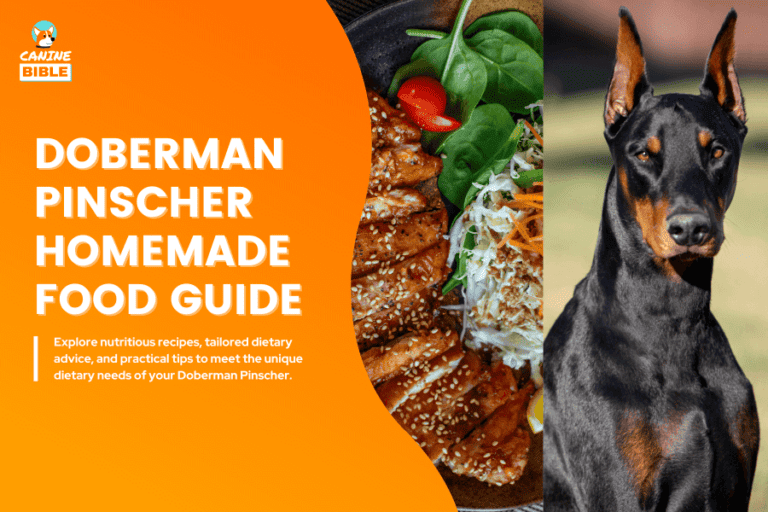German Shepherd Homemade Food Recipes & Guide (Puppy & Adult)
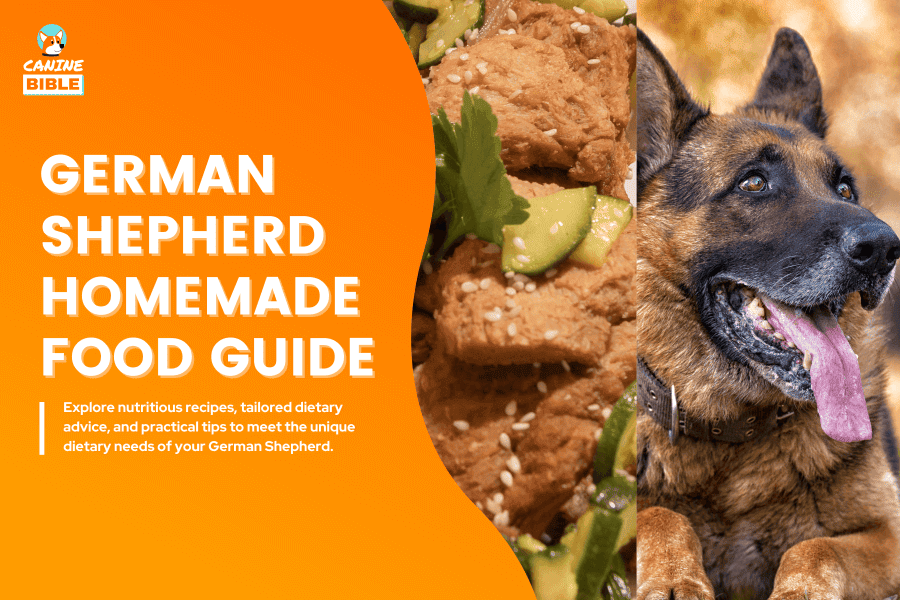
Canine Bible is reader-supported. We receive affiliate commissions via some of our links. This doesn’t affect rankings. Learn more.
Are you considering giving your German Shepherd homemade food? Whether you want to give your German Shepherd the occasional homemade meal or replace his entire diet with purely homemade, we’ve cooked up the ultimate guide on how to make homemade food for German Shepherds with breed-specific nutritional advice, guidelines to follow, favorite recipes, and every detail you need to know to create balanced meals your GSDs will love. But, before jumping into our guide, let’s discuss the benefits of homemade food for your GSD and other critical aspects overlooked when cooking for GSDs. Let’s dive right in!
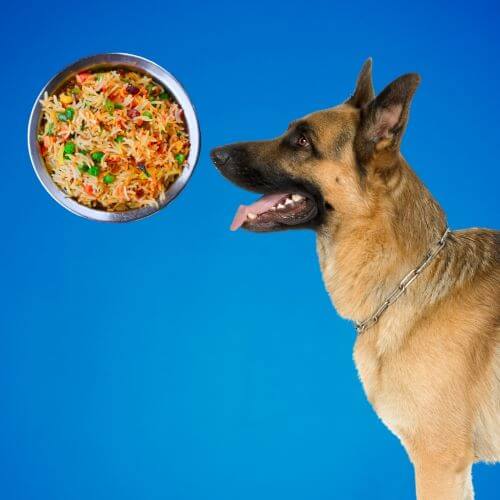
Nutrition, Benefits & Risks
Jump to: Recipes & Cooking
German Shepherds Homemade Dog Food Benefits
Here are some of the main benefits of cooking for your German Shepherd.
Board-certified veterinary nutritionists and diplomates of the American College of Veterinary Nutrition, Jennifer A. Larsen, DVM, MS, Ph.D., and Joe Bartges, DVM, Ph.D., state that feeding homemade dog food comes with significant advantages, such as diet management, appeasing picky eaters, bond-building, combatting food intolerance and allergies issues, and avoid concern over dog food recalls.[1] Further benefits include preventing many conditions associated with a poor diet, such as obesity, poor skin, coat condition, pancreatitis, diabetes, and reduced immunity.
Why Feed Homemade Food to German Shepherds
German Shepherds generally live between 9 to 13 years. This breed’s most common health problems include degenerative myelopathy, elbow and hip dysplasia, bloating and osteoarthritis. Diseases like allergies, hypersensitivities, von Willebrand disease (VWD), hypothyroidism, and inflammatory bowel disease are also common in the breed. Other minor and less common health problems this breed suffers include exocrine pancreatic insufficiency, osteosarcoma, perianal fistulas and pannus.
Top Reasons to Consider Homemade Food For German Shepherds
German Shepherds Homemade Dog Food Risks
Research by the University of California Davis, School of Veterinary and two studies published in The Journal Preventive Veterinary Medicine and The Journal of Nutritional Science found that most homemade dog food recipes lack key essential nutrients, and other recipes used dangerously high levels of some nutrients.[6],[7],[8]
48%
of homemade dog diets had an imprecise determination of ingredients and quantities
28.3%
didn’t use any recommended vitamins, minerals,
or amino acids.
30.4%
of the pet parents admitted
to purposely change
the recipe.
40%
of owners didn’t measure the proportions of the ingredients well enough.
Key Considerations When Feeding Your German Shepherd A Homemade Diet
You can get personalized nutritional advice from a registered vet nutritionist through Vetster anytime, anywhere. You can also chat with an online vet and ask them questions about your dog’s nutritional needs. For further dog nutrition guidance, consult “Home-Prepared Dog & Cat Diets: the Healthful Alternative” by Donald R. Strombeck, DVM, Ph.D., a renowned veterinary expert. This book is the go-to resource for healthy homemade dog nutrition for most pet nutritionists.
How to Make Homemade Food For German Shepherds
Homemade food for German Shepherds must include the six essential nutrients for a dog’s proper growth, body function, and health. These nutrients include proteins, carbohydrates, minerals, vitamins, fats, and water. It’s also important to consider your pup’s weight, health conditions, size, and activity level.
Below is a detailed breakdown of each nutrient and its importance.
German Shepherds Nutritional Guidelines to Follow
Proteins
Protein plays a vital role in your dog’s diet, providing essential amino acids necessary for bodily processes, including the creation of blood glucose for energy. Protein also helps build and repair muscles and other body tissues. It’s needed to make new skin cells, grow hair, hormones and enzymes. The proteins in your dog’s diet must have a balanced amino acid profile and are provided in appropriate amounts.
Protein dietary recommendations for German Shepherd´s homemade food:
Protein sources for homemade German Shepherd food include:
Carbohydrates
Dogs need energy for daily activities, growth, pregnancy, lactation, and exercise. This energy, measured in calories, comes from carbohydrates, proteins, and fats. Omnivorous animals, including dogs, derive some energy from carbohydrates. Carbohydrates supply glucose needed by the brain, nervous system, and other critical organs for normal function in dogs. You can use our dog calorie calculator to find the exact caloric needs of your dog based on his weight. Ensure you follow the 10% rule if feeding treats to your dog. Food would equal 90% of the total calories and treats the remaining 10%.
Energy dietary recommendations for German Shepherd’s homemade food based on life stage, weight and activity level.
| Type of Dog | 10 lb | 50 lb | 70 lb | 90 lb |
|---|---|---|---|---|
| Puppies | 990 | — | — | — |
| Inactive German Shepherd | — | 989 | 1,272 | 1,540 |
| Adult Active Inactive German Shepherd | — | 1,353 | 1,740 | 2,100 |
| Pregnant German Shepherd | — | 1,940 | 2,570 | 3,170 |
| Young Active German Shepherd | — | 1,451 | 1,876 | 2,264 |
| Senior Active German Shepherd | — | 1,093 | 1,407 | 1,700 |
Carbohydrate sources for homemade German Shepherd food include:
Fats
Fats play a multifaceted role in a dog’s diet. They are a dense energy source, provide essential fatty acids for skin and coat health, enable absorption of fat-soluble vitamins, improve food palatability, offer insulation and organ protection, support reproductive health, are critical for nervous system function, and serve as a reserve for energy storage.
Fat dietary recommendations for German Shepherd’s homemade food:
Fat sources for homemade German Shepherd food include:
Minerals
Minerals in a dog’s diet are indispensable for bone and dental health, nerve function, enzymatic reactions, fluid balance, oxygen transport, and maintaining the body’s pH level, making them essential for overall health and metabolic processes. Proper mineral balance is crucial and should be carefully managed to avoid deficiencies or excesses.
These 12 minerals are known to be essential nutrients for dogs:
Mineral sources for homemade German Shepherd food include:
Vitamins
Vitamins in a dog’s diet are integral for maintaining overall health and bodily functions. They support vision, immune health, aid in energy metabolism and nervous system function, provide antioxidant benefits, reduce inflammation, prevent diseases and ailments and more. Dogs require vitamins, but only in small amounts, and excessive doses of certain vitamins, like vitamin D, can harm them.[9]
These 12 vitamins are known to be essential nutrients for dogs:
Vitamin sources for homemade German Shepherd food include:
Water
Water is vital in a dog’s diet to maintain hydration, support body functions such as digestion, nutrient absorption, and waste excretion, lubricate joints, regulate body temperature, ensure proper organ function, and facilitate metabolic processes. Continuous access to clean water is as crucial as providing nutritious food for overall health and well-being. Generally, German Shepherds should drink 2 to 3 times the amount of their dry food intake daily. However, if water is readily available from various sources, German Shepherds can naturally regulate daily water consumption.
Source: We compiled the data for the table above by referencing the Association of American Feed Control Officials (AAFCO) guidelines and the Nutrient Requirements of Dogs Report by the National Research Council (NRC). The Food and Drug Administration (FDA) utilizes the information from these reports to regulate and ensure the safety of pet foods.
Homemade Dog Food For German Shepherd Puppies
A German Shepherd puppy’s dietary requirements differ from those of an adult’s German Shepherd. Compared to adult dogs, puppies require higher protein, fat, calcium, and phosphorus levels. Inadequate or excessive amounts of these nutrients can lead to deficiencies, hindered growth, or lifelong health complications.
Homemade Dog Food Delivery Service
Nom Nom is one of our homemade dog food delivery options. They offer various fresh, homemade dog food options tailored to your dog’s unique dietary needs, age, health conditions, and nutritional goals. For example, if your German Shepherd suffers from food-related health issues such as allergies or illnesses, Nom Nom can create a customized recipe that caters to those needs. Their meals are made with real, human-grade ingredients and delivered to your doorstep.
The food is developed by veterinary nutritionists who adhere to AAFCO nutritional guidelines. In our experience, using Nom Nom saves you time, allowing you to focus on more important things like walks or training your dog. Additionally, you won’t have to worry about the hassle of meal planning, grocery shopping, or cooking, and you can mitigate the risks of cooking for dogs.
Best Homemade Food For German Shepherds
The best homemade food for German Shepherds is a balanced diet that provides optimal nutrients for proper function while considering your dog’s nutritional goals and health. We highly recommend Nom Nom as the best homemade food for German Shepherds, adults and puppies.
Don’t feel like cooking for your German Shepherd? Here is the most comprehensive guide to help you find the best dog food for German Shepherds.
Recipes, Cooking Tips & More
Jump to: Benefits & Nutrition
Best German Shepherds Homemade Dog Food Recipes
Browse the best homemade dog food recipes for German Shepherds that will make your pup beg for more. We’ve also included a special treat recipe for your German Shepherd, enriched with the health benefits of our favorite ingredient: dog CBD oil. CBD oil might help with issues like seizures, anxiety, arthritis, inflammation, pain, and overall wellness.
Note: Consult your vet before adjusting your dog’s diet. The recipes below don’t specify serving sizes since they depend on your dog’s breed, weight, age, activity, and health. As a guideline, consider feeding the equivalent amount you’d give in kibble, but always consult your veterinarian for proper portioning.
Gourmet Meal Recipe
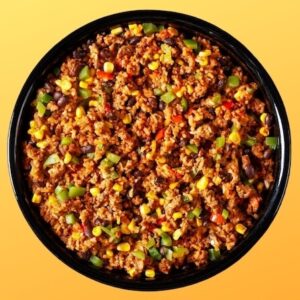
German Shepherd Gourmet Meal
Ingredients
- 1.5 lbs lean ground beef (90%)
- 2 cups cooked brown rice
- 0.25 lbs fresh or frozen peas
- 0.25 lbs carrots
- 1 tbsp flaxseed oil
- 0.5 lbs cottage cheese
Instructions
- Brown the Beef: In a large pan, cook the ground beef over medium heat until it's fully browned. Drain any excess fat.
- Cook the Rice: In a separate pot, cook the brown rice according to package instructions until it's soft.
- Steam the Vegetables: Steam the peas and carrots until they are soft but still retain some texture.
- Combine Ingredients: In a large bowl, mix the cooked beef, rice, and vegetables. Ensure the mixture is well combined.
- Add Supplements: Stir in the flaxseed oil and cottage cheese, ensuring they're evenly distributed throughout the mixture.
- Cooling: Allow the mixture to cool to room temperature before serving.
Blueberry-Banana CBD-Infused Dog Treat For German Shepherds
Treat your German Shepherd with these nutritious, therapeutic, and delicious homemade CBD dog treats. They are made with bananas, a great source of essential vitamins and minerals (like potassium, vitamin C, and vitamin B6). Banana also aids with digestion and energy. Coconut is added for skin and coat, digestion and helps reduce allergic reactions.
Remember to consult your vet to ensure CBD is safe for your dog and that you are giving the correct dosage. Alternatively, you can buy commercially available CBD dog treats so your pup can experience CBD’s benefits without the cooking.
Ingredients
Directions
- Oven preparation. Preheat oven to 350ºF and brush a dog biscuit baking tray with coconut oil.
- Banana preparation. Mash a ripe banana in a bowl until smooth, ensuring no large chunks remain.
- Dry ingredients. Blend gluten-free flour and oats in a medium-sized bowl.
- Wet ingredients. In a separate bowl, whisk an egg until beaten. Add coconut oil, water, mashed banana, unsweetened applesauce, and fresh blueberries. Mix well.
- Combining ingredients. Combine the wet mixture with the dry ingredients, stirring until even. Drizzle in CBD oil, stirring again for even distribution.
- Mold filling. Scoop portions of the mixture with a tablespoon and press firmly into the dog-treat baking mold.
- Baking. Bake in the oven for 30 to 40 minutes until the treats are firm to the touch and slightly golden.
- Cooling and storage. Let the treats cool before transferring them to an airtight container for storage.
Chicken & Rice Delight Recipe For German Shepherds
Many dogs have a soft spot for chicken, making this dish a universal canine favorite. This easy-to-make recipe ensures your German Shepherd gets a nourishing and delightful meal. This batch yields approximately four servings, which can be stored in your refrigerator.
Ingredients
Directions
- Chicken preparation. Cut the chicken into half-inch pieces. In a frying pan with 1 tablespoon of vegetable oil, cook the chicken on medium heat for about 15 minutes or until fully cooked. Remove the chicken pieces and set aside the pan drippings.
- Rice preparation. In a pot, cook the rice according to the package instructions or until it’s soft and fluffy. Once done, set aside.
- Gravy creation. Over medium to low heat, warm the chicken drippings in the pan. Combine ½ cup of water or chicken broth with ½ cup of flour. Gently stir until it becomes a smooth mixture. Continue cooking until it evolves into a thick gravy consistency.
- Combining ingredients. Add the cooked chicken, rice, peas, and carrots to the gravy. Simmer the mixture for approximately 10 minutes or until the veggies are tender.
- Cooling. Let the stew cool down to room temperature before serving to ensure it’s safe for your dog.
Turkey, Vegetable & Quinoa Feast Recipe For German Shepherd
As a lean protein, Turkey is excellent for German Shepherds aiming for a healthy weight. This enhanced dog food recipe combines the richness of turkey with the nourishment of vegetables and quinoa – a superfood known for its protein and fiber content. A nourishing blend of lean protein and wholesome veggies, it’s the ideal meal for your German Shepherd.
Ingredients
Directions
- Cooking the turkey. Over medium heat, cook the ground turkey in a non-stick skillet until fully done. Ensure it’s crumbled well to make it easier for your dog to digest.
- Preparing the feast. Combine the quinoa, cooked turkey, and water in a large pot. Bring this mixture to a boil.
- Simmering. Once boiling, reduce the heat to medium-low. Let it simmer for approximately 15 minutes or until the quinoa becomes soft and translucent.
- Adding vegetables. Introduce the carrots, green beans, and spinach to the pot. Allow the mixture to cook for another 10 minutes, ensuring the vegetables are tender but not overly soft.
- Finishing touches. Once off the heat, stir in the fish oil and sprinkle turmeric, ensuring it’s mixed well.
- Storing. Let the meal cool to room temperature before serving. Extra portions can be refrigerated and consumed within five days.
Beefy & Veggie Medley Recipes For German Shepherd
Packed with lean protein from grass-fed beef and fortified with the nutritional punch of veggies, this recipe is both delicious and nourishing. Adding eggs and beneficial herbs ensures your German Shepherd gets essential vitamins and nutrients.
Ingredients
Directions
- Egg prep. Begin by boiling the eggs until they are hard-boiled. Once done, peel and finely chop them.
- Beef cooking. Brown the ground sirloin over medium heat in a large skillet, ensuring it’s thoroughly cooked. Once done, drain off any excess fat.
- Mix & combine. In a large mixing bowl or container, combine the cooked brown rice, browned sirloin, chopped eggs, diced or shredded carrots, peas or green beans, minced parsley, and the optional sprinkle of turmeric. Drizzle with olive or safflower oil.
- Stir together. Using a large spoon or spatula, gently mix all the ingredients until they are evenly distributed and well combined.
- Serve & store. Serve the mixture in your dog’s dish, ensuring it’s cooled to a safe temperature. Store any leftovers in an airtight container in the refrigerator.
More German Shepherds Homemade Food Recipes
If you want more homemade dog food recipes and cooking options for your German Shepherd, check out our article on the best vet approved homemade dog food recipes. Cookbooks can be useful for various recipes. Our favorite book for German Shepherd homemade food recipes is Home Cooking for Your Dog: 75 Holistic Recipes for a Healthier Dog.
How to Cook Homemade Food For German Shepherd ( Video)
Watch this video and learn how to cook homemade meals for German Shepherds.
German Shepherds Homemade Cooking Tips
Before sharing our favorite German Shepherd homemade food recipes, follow these best practices when preparing your dog’s next meal.
At-Home Health Dietary Changes In German-Shepherd
The dietary adjustments outlined in this table might benefit German Shepherds experiencing any of the issues below.
| Condition | Dietary Needs & Adjustments |
|---|---|
| Coat Color Changes | Increase amino acids which can be found in protein (>75 grams per 1000 calories) |
| Concurrent GI Signs | Avoid foods with tryptamine and histamine such as dairy or fermented vegetables and meats. This includes bacon. Try a simple ingredient food trial. |
| Chronic Itching and Dermatitis | Fortify the diet with vitamin E, vitamin B, Zinc, omega-6 and the omega-3 fatty acids found in fish oil. Add a dog probiotic. Try a simple ingredient food trial. |
| Dull Coat and Scaling | Adjust EPA and DHA levels in the diet. Adding fish oil can promote healthier coats by reducing itchiness and flakiness in the skin due to its omega-3 fatty acid content. |
| Dandruff and Crustiness | Add Zinc and Vitamin A levels |
Recommended Supplements For German Shepherds
Here are the top recommended supplements for German Shepherds based on their main health susceptibility issues.
Monitor Weight And Health
A dog’s weight and gut health are essential indicators of their health, and you need to track them when switching to a new diet (i.e., homemade). Maintaining a healthy weight is easier when your German Shepherd is fed the right dog food. If your dog’s weight increases or decreases rapidly, it might be due to food-related health issues. A healthy gut can confirm a smooth transition to your dog’s new diet, among other health issues. However, identifying a healthy gut is not an easy task. Fortunately, an at-home dog gut health test can provide insight into your dog’s gut health.
Skin or coat issues, excessive tiredness, allergies, weight loss, malnutrition, and obesity can be caused by unbalanced and insufficient meal plans. If you detect any of these symptoms while feeding your dog meals, stop doing it immediately and seek expert advice.
Foods Your German Shepherd Should Never Eat
Below is a list of the most common toxic ingredients dogs need to avoid.
Here is the complete list of toxic ingredients your German Shepherd should never eat. Please print it out and put it on your refrigerator as a reminder.
German Shepherds Raw Diet (BARF)
Raw dog food mimics dogs’ diet in the wild millions of years ago. Raw dog foods, organs, muscles, whole or ground bones, fresh fruits, vegetables, and dairy products are usually included. Several raw dog foods are available, including homemade raw dog food and store-bought (frozen, freeze-dried, and dehydrated).
As the risk of contamination and nutritional imbalance is higher when handling raw foods, preparing a BARF diet for your German Shepherd requires a lot of extra care and planning. Raw dog diets are gaining popularity because of their fantastic health benefits for teeth, coats, digestion, and allergies. Read our raw dog food diet article to learn more about the benefits and risks and get the best raw food diet for your German Shepherd.
Homemade Dog Food For German Shepherds— Conclusion & Alternatives
Many dog owners think dog food is the same for all dogs, but that’s false. Every dog has different nutritional requirements based on several factors, and GSDs are no exception. We hope you found the best homemade dog food recipes for German Shepherds and learned about proper nutrition and what to look for when cooking for German Shepherds. Remember to work alongside your vet to ensure the diet maintains nutritional adequacy before adding or changing your dog’s diet.
Read up on vegan dog food if your German Shepherd is prone to food allergies or food-related health issues. Plant-based diets are also becoming increasingly popular for dogs with food sensitivities and other health issues.
Like It? Subscribe & Share!
Sources
Canine Bible uses only high-quality sources, including peer-reviewed studies, to support the facts within our articles. Read our editorial process and product review methodology to learn more about how we fact-check, test products, and keep our content accurate, reliable, and trustworthy.
- American Kennel Club. (n.d.). Cooking for your dog: Pros and cons of cooking homemade dog food.
- Lippert G, Sapy B. (2003). Relation Between The Domestic Dogs Well-Being and Life Expectancy.
- American Veterinary Medical Association. (2019, February 13). Study finds overweight dogs live shorter lives.
- Podolsky, A. (2019, November 28). Feed the dog not the cancer: The danger of processed dog food. Lyka.
- Harvard Health Publishing. (2018, May). Eating highly processed foods may raise cancer risk. Harvard Health; Harvard Health.
- Pedrinelli, V., Gomes, M. de O. S., & Carciofi, A. C. (2017). Analysis of recipes of home-prepared diets for dogs and cats published in Portuguese. Journal of Nutritional Science, 6.
- Bland, I. M., Guthrie-Jones, A., Taylor, R. D., & Hill, J. (2010). Dog obesity: Veterinary practices’ and owners’ opinions on cause and management. Preventive Veterinary Medicine, 94(3-4), 310–315.
- WebDev, I. E. T. (2013, July 15). Homemade dog food recipes can be risky business, study finds. UC Davis.
- U.S. Food and Drug Administration. (2023, February 9). Vitamin D toxicity in dogs.
Canine Bible authorship represents the unified voice of our entire editorial team and our in-house veterinarians rather than a single author. Each article, blog post, and review published under the Canine Bible name undergoes a rigorous review process, involving all team members to guarantee accuracy and up-to-date in accordance with the latest veterinarian research. This collaborative effort is an integral part of our editorial process and aligns with our four pillars of content creation. This approach ensures our content is backed by expert knowledge and factual information, offering our readers reliable, actionable, and trustworthy content.

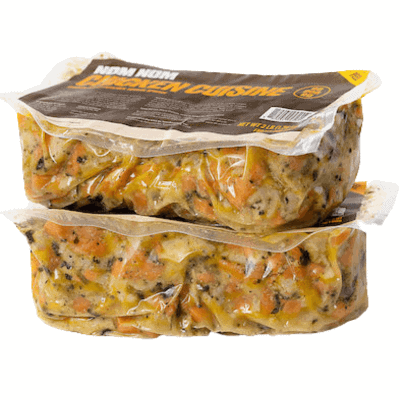

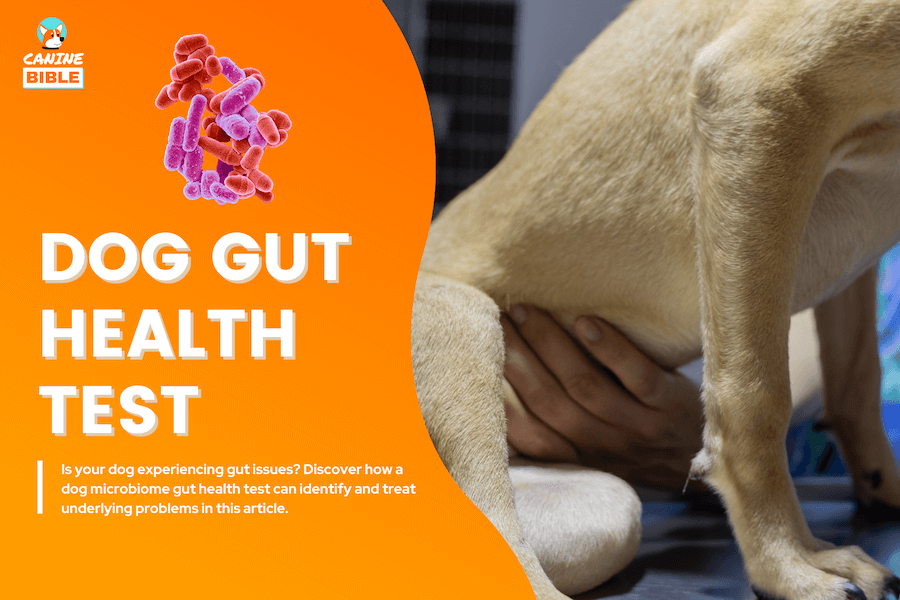
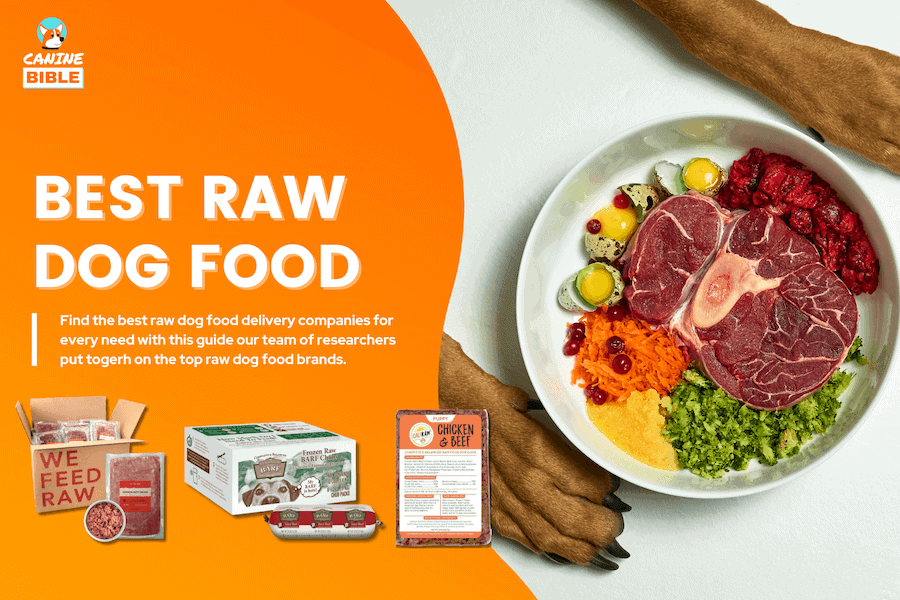

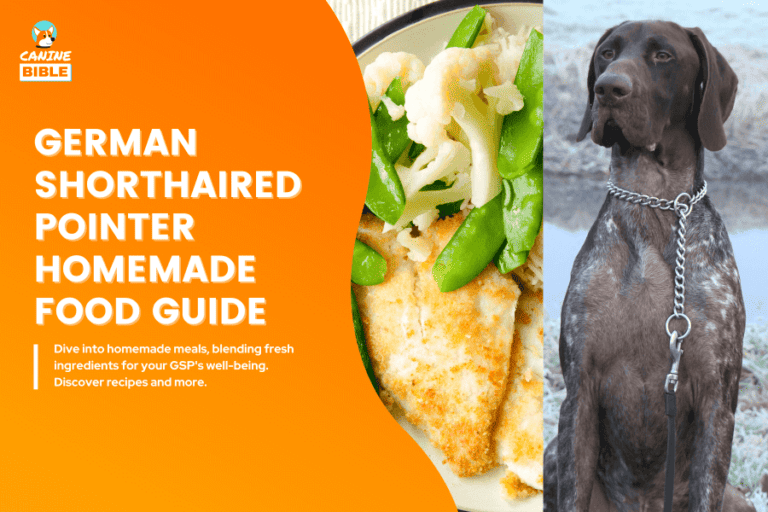
![Human Grade vs Feed-Grade Dog Food: Which Is Better? [Pros & Cons]](https://www.caninebible.com/wp-content/uploads/2023/10/human-grade-dog-food-vs-feed-grade-dog-food-768x512.png)

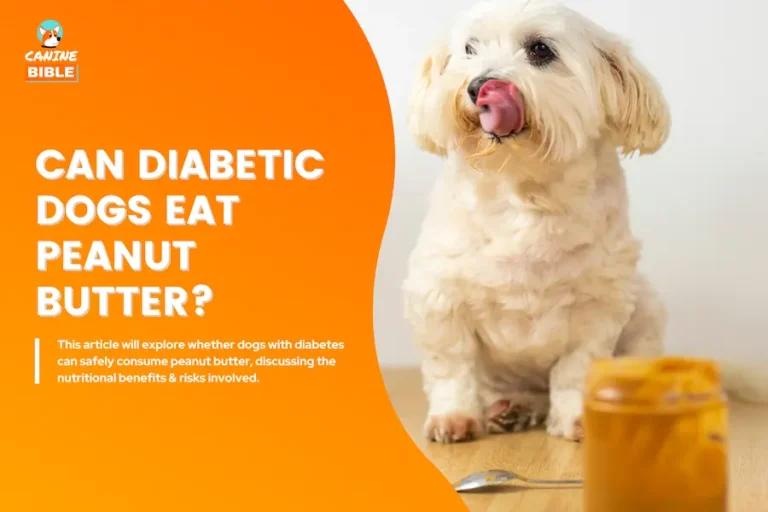
![Best French Bulldog Raw Food Diet Guide: Recipes [Adult & Puppy]](https://www.caninebible.com/wp-content/uploads/2021/12/french-bulldog-raw-food-diet-768x512.png)
